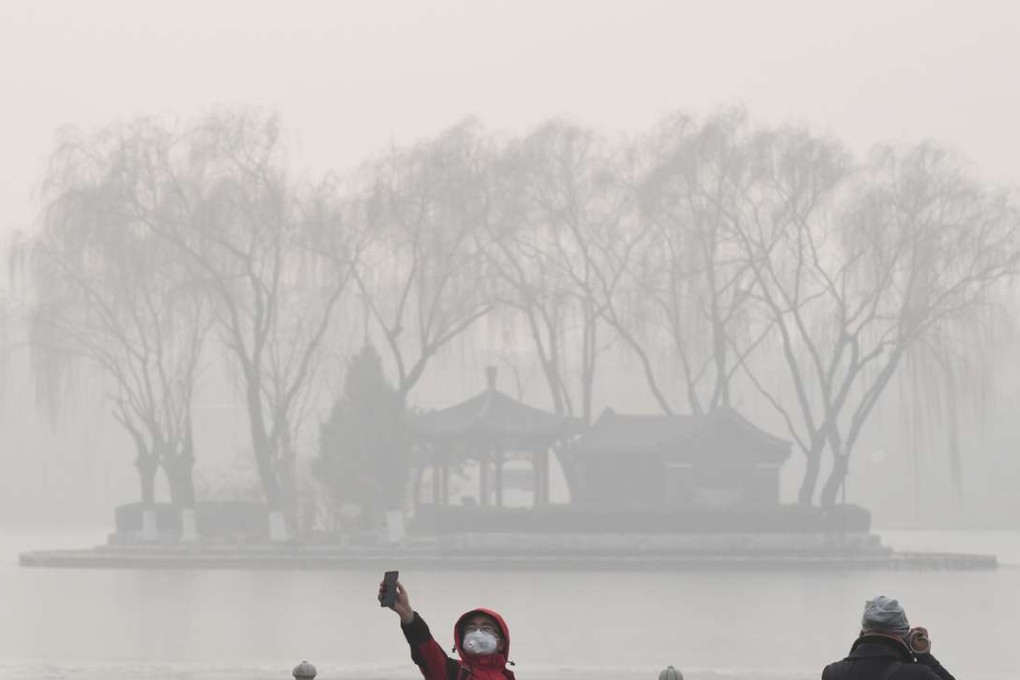Smog levels in Beijing off the charts
Air quality reading exceeds maximum 500 mark on index, US embassy says, as blanket of acrid air descends across north, hitting holiday plans

Residents in Beijing kicked off the first day of the new year with smog that was off the charts.
The air quality index released by the municipal environmental protection bureau on Sunday hit 482, almost touching the 500 mark where the scale tops out, and far beyond the point deemed hazardous to health. The US embassy gives its own reading for air pollution in the capital, and said levels were well beyond 500.
More than a dozen other cities including Tianjin and others in neighbouring Hebei and Shandong provinces also saw smog return to dangerous levels.
The poor visibility led to the cancellation of hundreds of flights throughout the region.